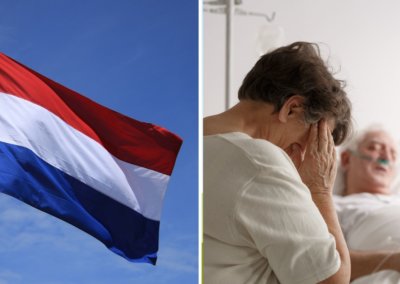A pro-assisted suicide group is challenging the Dutch euthanasia law that allows doctors to assist in suicide but criminalises others who assist people end their own lives, claiming that it violates European human rights law.
Assisted suicide and euthanasia have been legal in the Netherlands since 2001 provided that it is performed or administered by a doctor. However, the group, Cooperative Last Will, believes the law should be changed to allow people to assist others in ending their own lives without the presence of a doctor.
On Monday they told judges that the current Dutch law violates their human rights and should be declared unlawful.
Jos van Wijk of Cooperative Last Will said: “We believe it should be possible to provide the means to be able to humanely end your own life”.
In the Netherlands assisted suicide must be overseen by a doctor
A lawyer for the group said that the case was an instance of strategic legislation designed to force the Netherlands to change its assisted suicide and euthanasia laws. They argued that the ban on assisted suicide that is not overseen by a doctor was a violation of the right to self-determination and respect for private life.
Cooperative Last Will is involved in a separate ongoing case in which one of its members is suspected of illegally assisting others in their suicide through the sale of a suicide powder they are calling Substance X to at least 33 people. The group has been promoting this substance since 2018.
Right To Life UK spokesperson Catherine Robinson said: “As the Netherlands has found out and as Canada is finding out, once assisted suicide and euthanasia are made legal, it is extremely difficult to prevent their expansion. If they are made available for the sake of autonomy, then it seems they should apply to any adult, regardless of other considerations. However, the current requirement that the process is overseen by a doctor is at least a minimal safeguard against a system that already adversely affects the elderly and vulnerable”.












